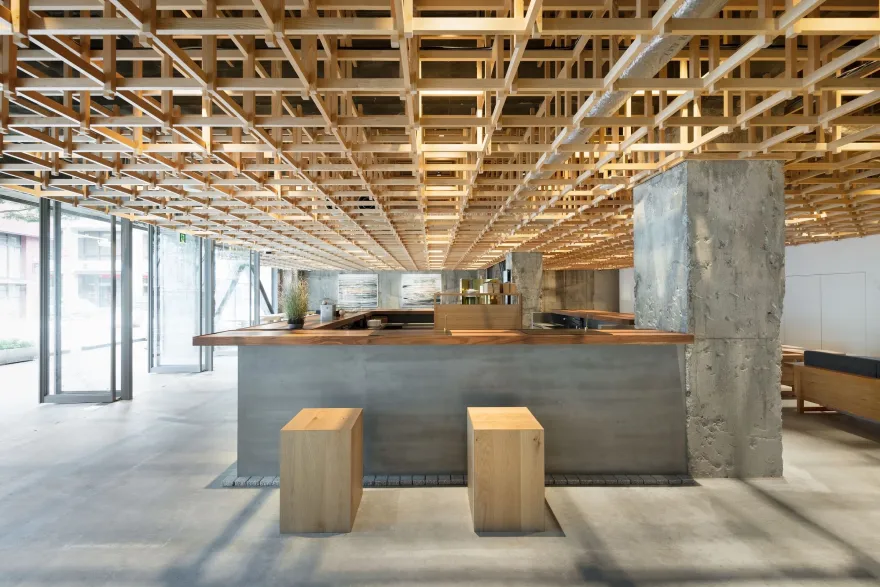查看完整案例

收藏

下载

翻译
Architect:Yusuke Seki
Location:Kanazawa City, Ishikawa, Japan; | ;
Project Year:2017
Category:Hotels
Kanazawa is an old castle town on the Sea of Japan, famous for its tea-house districts and traditional crafts. Within this unique context, we proposed a hotel that serves to introduce foreign and domestic guests to the local community and its history.
The hotel is named after its concept: KUMU. This is a Japanese verb with many nuances: depending on the context, the word can mean “to join” (組む), “to draw out” (汲む), or “to pour” (酌む). In a larger sense, “kumu” relates to the links between people and places (joining), empathy (drawing out and reading another’s feelings), and the spirit of hospitality (pouring someone a drink).
This concept leads to a hotel that is inclusive and engaged with its context. Housed in a renovated office building, the hotel includes options ranging from dormitories to suites to accommodate the diverse needs of travelers today. In dialogue with Kanazawa’s tea houses, a tea salon on the ground floor “joins” the hotel to the community and entices guests to explore other places in the city. “Kumu” also appears in other places. Traditional Japanese joinery was used for the timber grid in the lobby, which also serves to support modular wall panels for subdividing the space. The custom-designed furniture joins different textures and materials, while the screens in the guest rooms feature grid-like detailing.
Drawing on the local context, pouring guests a cup of tea, joining people to a place and to one another: this is what KUMU is all about.
Japan has a long tradition of inns called ryokan, and these have historically formed the infrastructure for visitors traveling throughout the country. Hotels are a modern development, but that perhaps also means that it is something that is easier to imagine anew.
Our goal with KUMU was to create a place that nurtures a connection between an increasingly diverse group of visitors and the historic local city. Creating a feeling of “luxury” was important – a luxury that comes from having the entire city and its culture at your fingertips. In this equation, the ideal hotel is no longer measured by the amenities it offers, but rather by how it provides the flexibility for visitors to combine their interests and needs to create their own experiences.
This project aims to create a space of encounter: a seasonal place that is open to the city in the summer, provides warmth in the winter, and is frequented by locals and visitors alike to mingle, forge relationships, and think about the future of the community. Our goal was not to just create another place to sleep, but rather to think earnestly about how strategies for facilitating visitors’ experiences and engagement with the city can be combined with arresting designs.
1. MAGIS Pira Chair
2. MAGIS Officina Chair
3. Original furniture (tsuga wood, oakwood, concrete)
▼项目更多图片
客服
消息
收藏
下载
最近





























